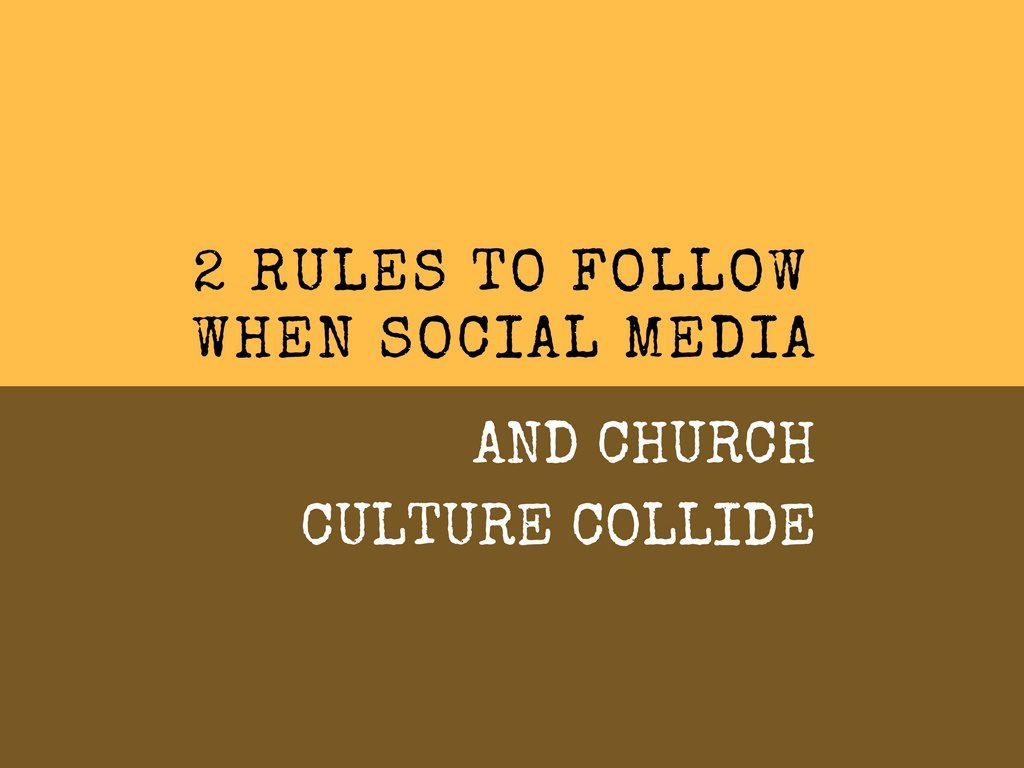We all want to keep up with communication trends so that we can reach our world. We remind ourselves that the Apostle Paul said “I have become all things to all people so that by all possible means I might save some. I do all this for the sake of the gospel” (1 Cor. 9:22,23a). Though we work hard to do that, we also need to be realistic as we work to apply what is currently useful in the secular communication world and how that will work out in the crucible of church culture.
To start perhaps a discussion at your next church staff meeting or church leadership or committee, below is an interesting summary of some of the rules of social media from a position paper by Solaria Media. The paper is a couple of years old, but remains useful.
Here is an excerpt from it:
The rules of social media:
To communicate effectively in the social media world means understanding the new rules of the road.
People want:
- To have a say.
- Meaningful dialogue.
- To be engaged and involved in the process.
- Personal interactions with others.
- To be listened to.
- To help shape what they find useful.
- To connect with others engaged in similar activities.
- Plain talk.
- Communication to be genuine and relevant.
- To conduct business with ethical companies who work transparently.
- To be in partnership.
[http://www.solari.net/documents/position-papers/Solari-Social-Media-and-Communication.pdf]
This quote has two areas that are worth noting when a church might want to apply them:
#1 Pertaining to online behavior
Lists like this (and I’m sure you’ve seen them) are not anything new. Though there is some truth to each statement, they are in large measure glorified ideas of what social media should be like. It rarely is. Many comment sections of blogs, articles, and responses to Twitter can seldom be described as “meaningful dialog” or “genuine and relevant.”
In reality, it seems going online gives some people permission to shed all civility, kindness, or any ability at all to edit whatever snarky, vile, or inflammatory comment that enters their mind and they feel compelled to share with the world. Sadly, it isn’t only the secular world that exhibits this behavior.
This doesn’t mean we shouldn’t strive for the lofty goals above and for churches this is an area we can challenge our people in. If you are in a pastoral role and are involved in the social media lives of your people, you may find it somewhat shocking and depressing when the online life of someone in your ministry is a far cry from what you feel should characterize a disciple of Jesus. Being online friends on Facebook or Twitter or Instagram followers of some members of your congregation can be a real eye-opener and not always an encouraging one.
We need to talk about this with our people. As an example of how not to cave into outside influences, the Apostle Paul described himself in this way, “My way of life in Christ Jesus, which agrees with what I teach everywhere in every church” (1 Cor. 4:17).
To live congruent and whole lives as followers of Jesus we need to strive and remind our people to work for a consistency of life both online and off that is honoring to the Lord. A good book on this topic with lots of relevant and practical advice is #struggles, Following Jesus in a Selfie-Centered World by Craig Groeschel.
#2 How Companies (and Churches) are Expected to Interact Because of Social Media
The guidelines above were written for companies and again many studies show the trend of younger generations to want involvement in decision making and a desire to collaborate in their work. In the business world, that may or may not work out, but you need to understand that those same expectations along with the communication and decision making expectations of the same age group of people who come into your church.
You may not be ready for that.
Though many of the above rules are positive, e.g., we want our “communications to be genuine and relevant,” do you really want the people in your church to “have a say” in every decision made by your church leadership? Do you want them to “have meaningful dialog” and “engaged and involved in the process” in all the decisions and directions of the church?
The answer is probably “no” and there is nothing wrong with that.
Here is the challenge—just because new media has certain expectations, doesn’t mean these “rules” are Biblical, sound, or even wise and realistic in church communications. Nor do they apply to Biblical guidelines concerning leadership and governing of the church.
Leaders need to understand shifting cultural trends, but there are times when a Pastor must say (of course with kindness, love, and patience) something like (in print, verbally, and through social media):
“This is a decision that will be made by the finance or committee of the church, and though we appreciate your input, only the committee has all the information necessary to make the final decision.”
“The stand we are taking on this issue is a Biblical one and though we appreciate and acknowledge the difficulty of it and wish to respond in kindness to all involved, the position of the church is firm.”
“No, we aren’t going to vote on most popular topics for next year’s sermons.”
The last one may seem a little exaggerated, but it is a logical conclusion for people who assume their right to “shape what they find useful.” There are times when church leadership needs to remind those young in the faith that Moses, Jeremiah, (all the prophets), Paul, and Jesus did not shape their message via community input, but from time alone with God.
To repeat, this must be done in a loving respectful way, but the important thing here is that you need to clarify and communicate the boundaries in the church where input is encouraged and where it is limited. It’s when decision-making boundaries are fuzzy that feelings get hurt when someone assumes that their input mattered more than it does.
Just because it is a popular trend in social media today to make people feel involved in decision making, don’t ask for input if you have no intention of seriously taking it into consider or if your committee or church policy has no intention of changing.
Social media expectations may frustrate us and may collide with the culture of our church; they may need to be explained and challenged, but if they result in us thinking through and working hard to make the truths of the church relevant to our world today that will create a communication culture all ages and stages of media use can share in.




